Steering towards action plans
In 2023, XPaths embarked on the final phase of a long and fruitful participatory process; engaging with multiple actors to co-design action plans (Phase 3).
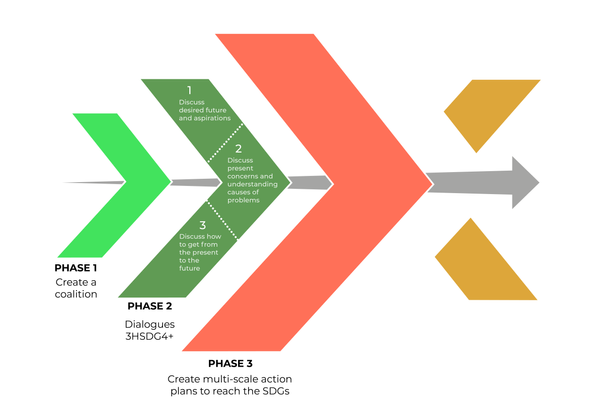
We're currently fine-tuning the newly created action plans for the case study of Brazil, molding them into practical guides that steer us towards a sustainable future in the context of drylands.
Curious about how XPaths are turning Dialogues into Action Plans?
...Scroll down to learn from our Brazilian case study.
XPaths' Endeavour for a Sustainable Brazil
In the span of 18 months, we engaged with over 100 participants in Brazil throughout six multi-actor dialogues to better understand its semi-arid region.
In May 2023, our final dialogue for the case study of Brazil took place in Petrolina-PE. Here, the XPaths team partnered with the Nexus project and 20 participants to co-design action plans for transforming the São Francisco River Basin and Transposition Area, key regions in Brazil's semi-arid landscape.
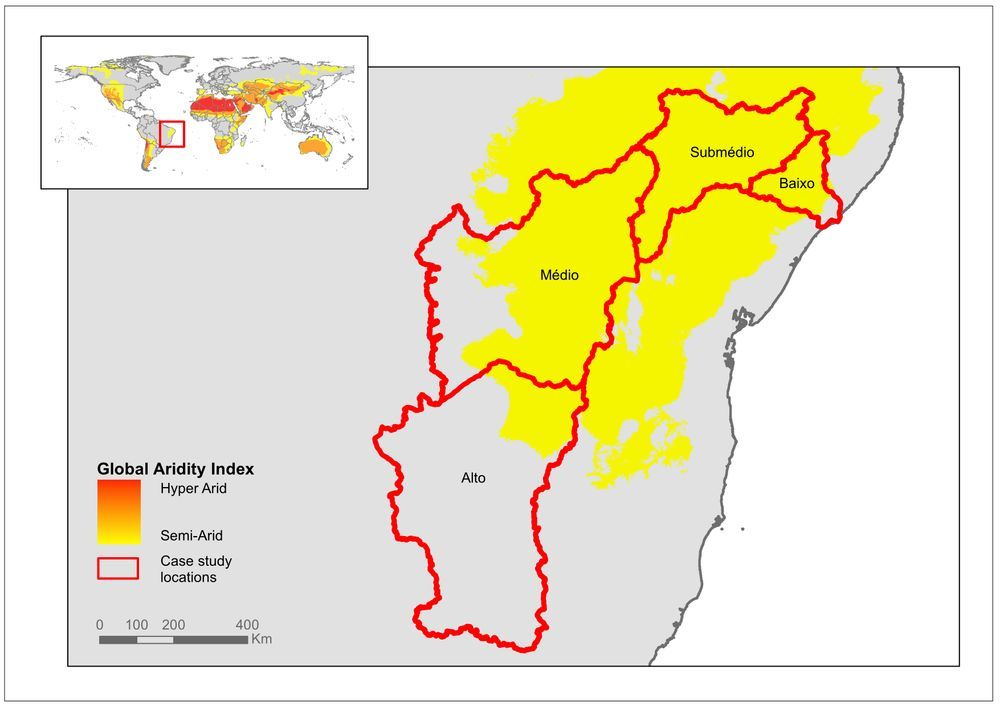
XPaths team embarked on its journey towards the Sustainable Development Goals (SDGs) by addressing the unique challenges present in Brazil's semi-arid region.
We see the pursuit of sustainability as an ongoing endeavor, not only to meet the global goals, but also to tackle the pressing problems at local scale by understanding their systemic roots" said XPaths doctoral student Taís González.
Our approach was guided by the 3H4SDG framework, enabling us to foster lively discussions that were deepened by the inclusion of varied perspectives (Phase 2). These dialogues shed light on prevalent concerns and aspirations, as well as initiatives already making a difference in the region. This was the starting point for crafting action plans.
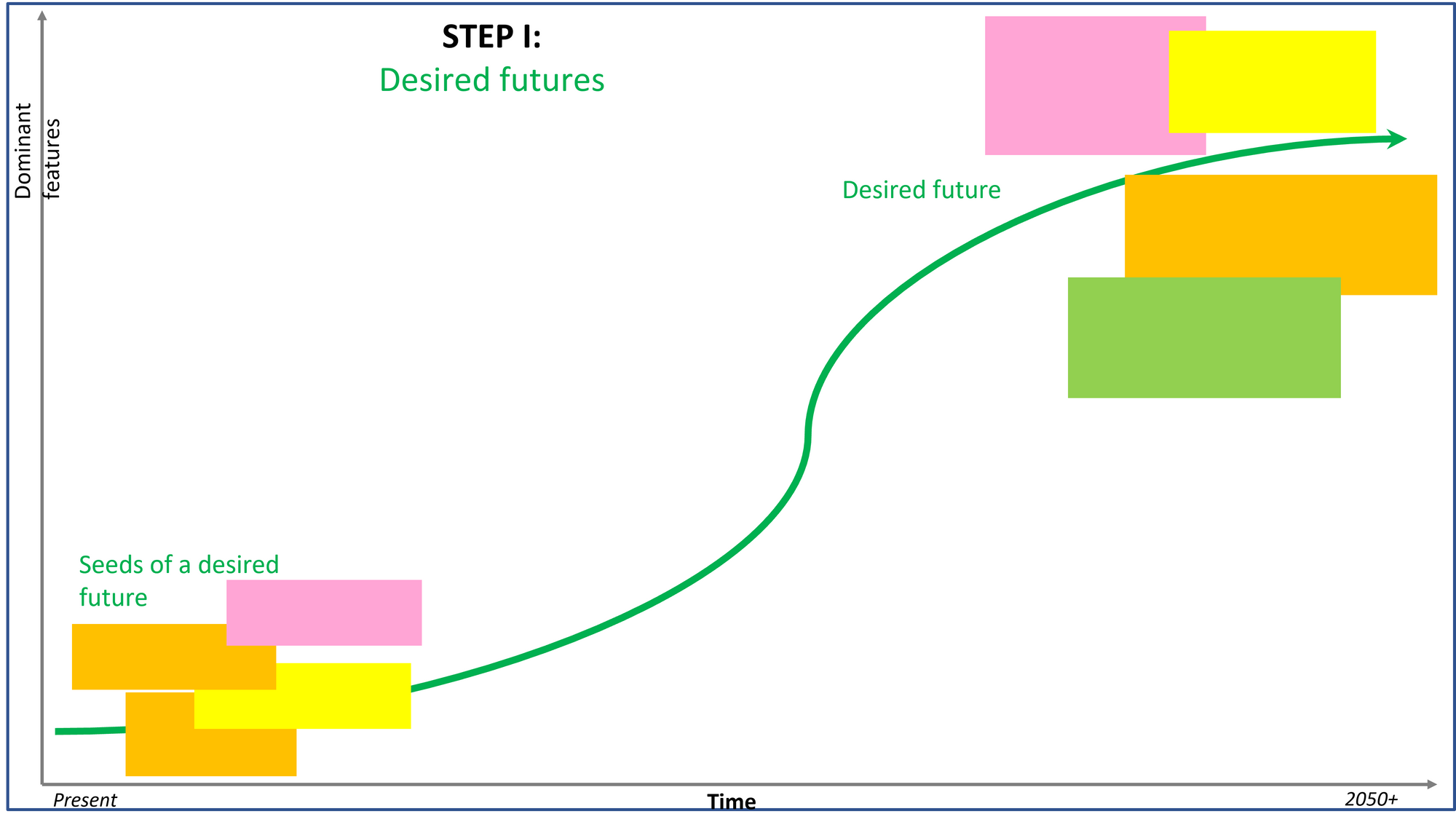
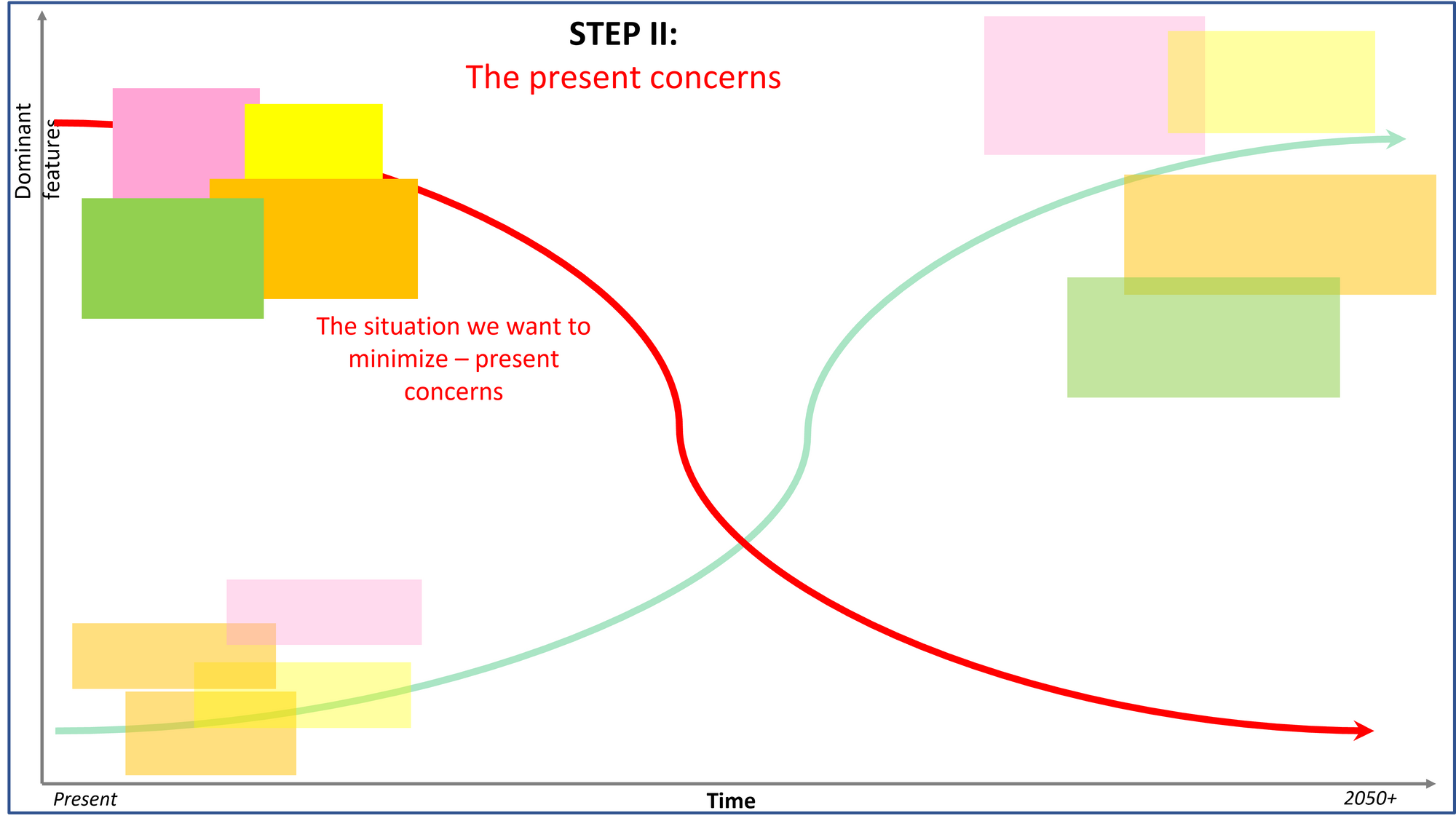
XPaths used the 3H4SDG approach; sparking dialogues about future aspirations (STEP 1) and present concerns (STEP 2) accross scales.
Subsequently, XPaths researchers selected the most recurrent concerns articulated in the dialogues at local and regional scale.
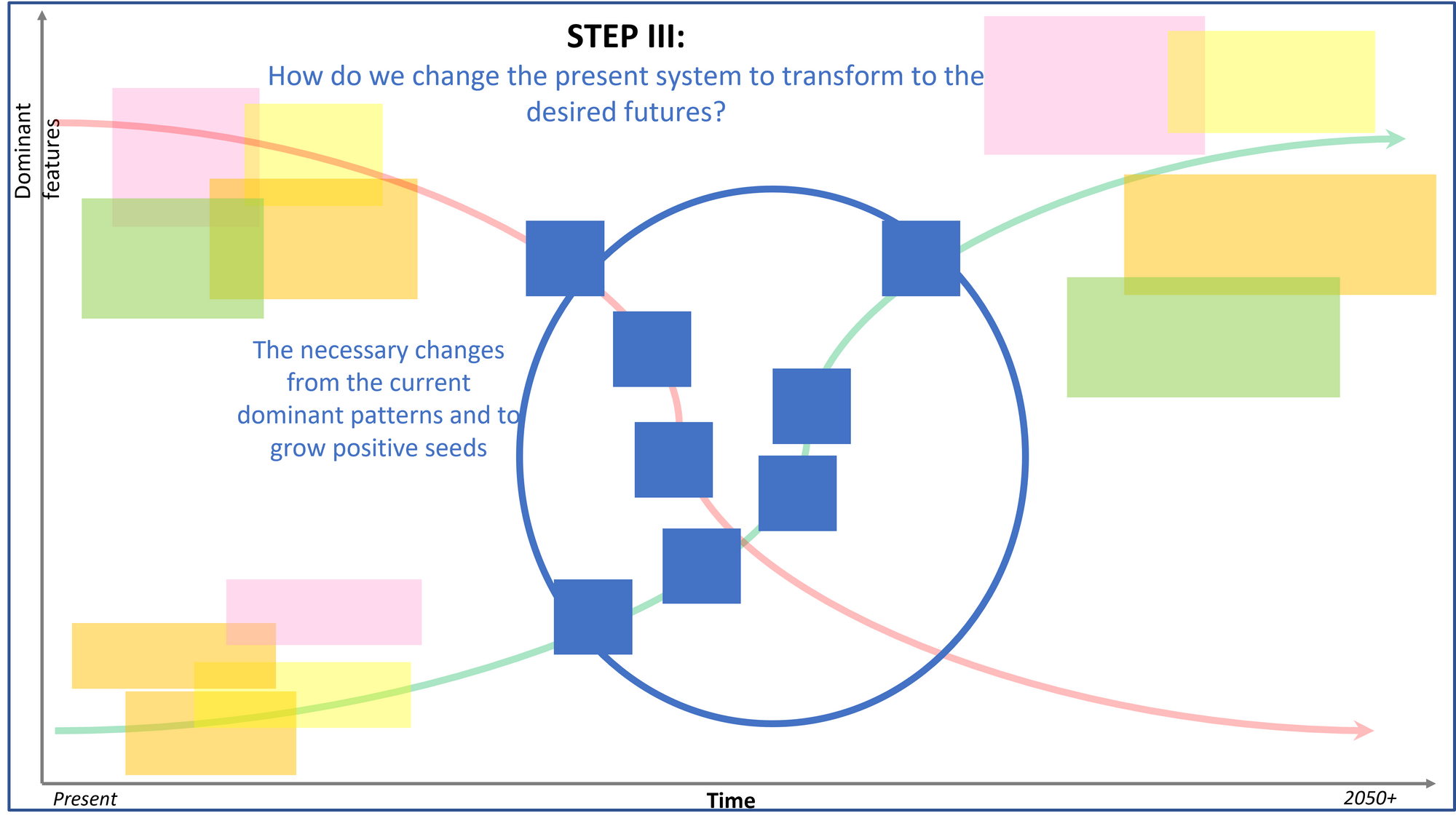
Following up on the 3H4SDG participatory process, XPaths researchers and participants built together Causal Loop Diagrams (CLDs). CLDs are visual maps depicting the complex dynamics of dryland systems (See photos below).

A multi-scale approach was vital in creating these diagrams, leading to the development of Integrative CLDs (iCLDs). iCLDs draw together elements from the CLDs built in previous dialogues, providing a holistic view of sustainability challenges, their root causes, and the patterns that hold them in place.
Our iCLDs work like a roadmap, guiding us to pinpoint potential systemic interventions needed to transition towards a sustainable future." Said XPaths Project leader Ana Paula Aguiar
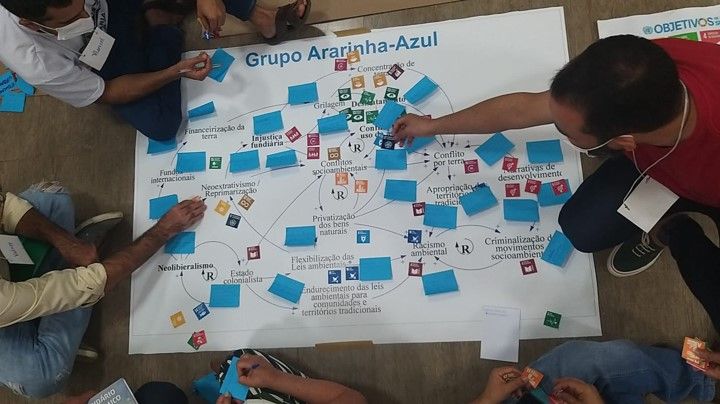
By voting on and grouping together common themes, our participants selected three central problems from the iCLDs. A series of possible actions to address these problems and achieve sustainable futures were listed and structured into four groups.

XPaths Dialogues with community representatives from Western Bahia followed a similar process, highlighting the importance of local and traditional communities' rights in our path to a just sustainable future. Taís González, a member of our XPaths team in Brazil, focuses her doctoral research on these key perspectives.

Participants in XPaths dialogues had the opportunity to train with the 'SDG Impact Assessment Tool'. This free digital tool is a great resource for understanding the interlinkages among the SDGs. In our context, this tool served as a self-assessment measure, allowing us to visualize the potential impacts of our selected actions on the progress towards the SDGs.
To wrap up our multi-actor dialogues, we showcased a theatrical play derived from our creative and participatory process. Following the performance, a thought-provoking discussion ensued. Our participants reflected on the identified sustainability challenges in their region, delving into local struggles and brainstorming potential solutions to overcome them.





XPaths combines storytelling and theater to encourage collective action and envision desired futures. These photos are from a presentation of the play in the last dialogue in Brazil. Photo: Taís Gonzalez
The script was a collaborative effort, co-produced with a theater group led by artist Fernanda Luz, in close partnership with XPaths project coordinator Ana Paula Dutra de Aguiar and doctoral student Taís González.
Watch the story of "VOZES" and join us on our journey towards sustainability
"VOZES", a theatre play produced by the XPaths project, is a riveting depiction of contrasting narratives on the future of Brazil's Cerrado/Caatinga region.
Inspired by the creative synthesis of six multi-actor dialogues held across 2021 and 2022, 'VOZES' served as a virtual forum theater in our multi-scale workshop in November 2022. Watch out for the full play release on our website by the end of 2023.
Our XPaths Dialogues owe its success to the relentless commitment and contributions of our participants since 2021, to whom we extend our deepest gratitude.
Stay tuned as we continue sharing our research-action process on sustainable transformations in drylands.
Comments